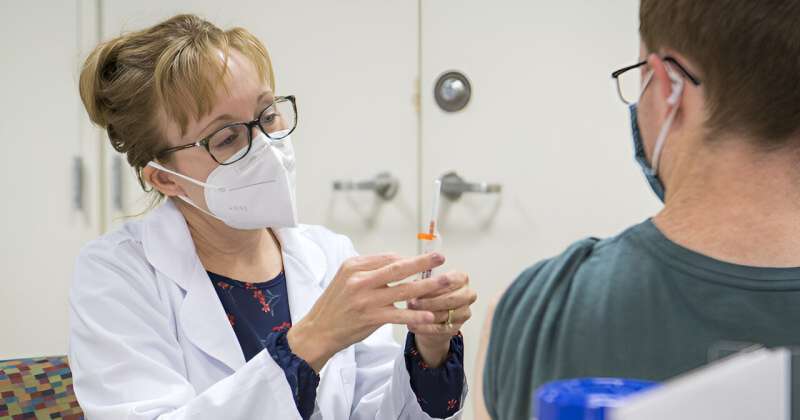This article has been reviewed according to Science X's editorial process and policies. Editors have highlighted the following attributes while ensuring the content's credibility:
fact-checked
trusted source
proofread
Threats to public health workers

While doctors and nurses were hailed as the frontline heroes of the COVID-19 pandemic, their counterparts in public health were experiencing threats. During the pandemic, threats against public health workers reached an all-time high. After the vaccine was released, those threats increased and changed in nature, according to a longitudinal study conducted during the first year of the pandemic by Jennifer Horney, founder of the University of Delaware Epidemiology Program in the College of Health Sciences.
The results, recently published in an open-access commentary in Public Health in Practice, show a strong need for expanded legal protections for all frontline workers but also illustrate a need for a more resilient and public health workforce.
While public health workers have always received threats, including during the SARS and Zika outbreaks, the COVID-19 pandemic threats were different.
"These threats were more personal in nature," Horney said. "Due to the proliferation of social media and the politicization of the pandemic, for the first time, public health leaders were finding protesters on their doorsteps or were being doxed."
The initial online survey found that 25% of respondents said someone in their public health agency had received personal threats. That percentage practically doubled to 41% in a follow-up survey. Of those, respondents said nearly all the personal threats were lodged by members of the public. Almost 40% reported receiving political threats.
The threats reported by public health workers who responded to the survey ranged from death threats to blame for COVID-19 deaths due to incompetence. One respondent reported a member of the public slapped her hand while administering a vaccine, while another said an unmasked person coughed on her before calling her an expletive.
"The threats were much more intense across the board," Horney said. "But the personal attacks of this nature were something we hadn't seen before."
The study found that public health leaders were particularly hard-hit. During the pandemic, public health leaders felt internal and external pressure to alter data to support lowering COVID-19 restrictions. More than half of local health directors reported harassment of themselves or their staff between March 2020 and January 2021. As a result, more than one in three public health leaders retired, resigned or were fired.
"Nearly every state lost a public health leader during COVID-19, and half of those losses were affiliated with some kind of threat," Horney said. "Leadership turnover during a public health emergency response can have significant negative impacts on effectiveness."
During the COVID-19 pandemic, public trust in the Centers for Disease Control (CDC) plummeted. State legislatures also introduced 1,531 bills during the pandemic seeking to alter public health emergency authorities. Of those, 191 were enacted in 43 states. Just 17 laws expanded public health authorities, while 65 laws contracted emergency authorities.
"The COVID-19 pandemic also marked the first time dozens of state legislators introduced new laws to take away public health powers," Horney pointed out. "It was very shortsighted because vaccination powers are pivotal in preventing deadly disease outbreaks."
The severity of the threats and their impact on the workforce is concerning, Horney said.
"These threats led to mental and emotional health problems that took a toll on this incredibly dedicated and already understaffed workforce," Horney said. "It could take years for the workforce to recover."
The study illustrates the need for more robust support for public health workers, including training, coping, protective services and media management.
"Public health has become more politicized with vaccine hesitancy and COVID, so leaders need more education and training to become more politically astute," Horney said. "Public health workers who are governed by political factors must understand how power structures operate in their state and their ability to operate within those structures."
In response to this study and others that show the pandemic's toll on the public health workforce, in October the CDC released new burnout prevention training. The free online training aims to help managers and supervisors prevent burnout in their employees and themselves.
Despite public health workers becoming more visible during the pandemic, that visibility has come with a cost. Horney said public health must find a better way to tell its success stories.
"The big argument has always been that when public health works well—it's invisible. We don't count how often you ate at a restaurant and didn't get sick," Horney said. "Public health needs to be more proactive and take more credit for the wins. If what you do is invisible unless there's a big emergency, it will remain hard for the public to understand it."
More information: Jennifer A. Horney et al, Threats to public health workers, Public Health in Practice (2023). DOI: 10.1016/j.puhip.2023.100435




















